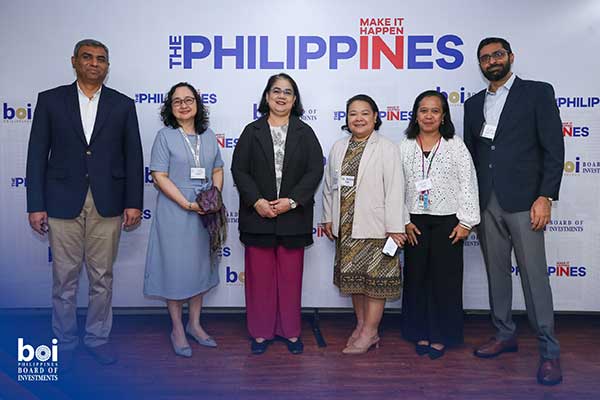
The Philippines is stepping up efforts to strengthen its pharmaceutical industry, aiming to reduce reliance on imports and secure local manufacturing of essential medicines.
Spearheaded by the Board of Investments (BOI) and supported by the U.S. Agency for International Development (USAID), the initiative falls under the Promoting the Quality of Medicines Plus (PQM+) Program, a USAID-backed project designed to elevate medical product quality in low- and middle-income countries.
“Consistency and reliability in the healthcare system partnership among the government, academia, and industry are key to developing a cutting-edge pharmaceutical industry,” said Dr. Yolanda Oliveros, Deputy Director of USAID’s Office of Health, during a recent event organized by the BOI in Makati City to present findings from a PQM+ study on the Philippine pharmaceutical industry.
The six-year PQM+ program, initiated in 2019, aims to strengthen the quality assurance of medical products and boost the local production of essential medicines in the Philippines and other eligible countries.
It emphasizes optimizing financial resources, enhancing quality assurance systems, and bolstering international partnerships.
The United States Pharmacopeia (USP), PQM+’s implementing partner, has been working closely with Philippine government officials and industry representatives to identify priority areas for domestic pharmaceutical growth.
During consultations with local stakeholders, the PQM+ team identified tuberculosis (TB) and HIV medications as priority areas for local production due to substantial demand, limited local manufacturing capacity, and global supply chain vulnerabilities.
“We believe that with the right support, the pharmaceutical industry of the Philippines will flourish,” said Director Mehmood Anwar, who stressed the need for a testing laboratory dedicated to priority medicines in both public and private sectors.
The Philippine pharmaceutical market, driven by population growth and increasing health awareness, reached PHP 118.8 billion (USD 2.1 billion) in 2023.
By 2029, it is expected to reach PHP 131.7 billion (USD 2.33 billion) with a compound annual growth rate of 2.4%.
Despite a high domestic demand, most pharmaceuticals in the Philippines are imported, primarily from the United States, India, China, and Germany, with imports totaling PHP 133 billion (USD 2.35 billion) in 2023.
“The Philippine pharmaceutical industry is the fastest growing and third largest in ASEAN,” said Philippine Pharmaceutical Manufacturers Association (PPMA) President Engr. Higinio Porte Jr., acknowledging the BOI’s support.
The group expressed optimism that government backing will drive greater local production of critical medicines and reduce supply chain risks exposed during the COVID-19 pandemic.
Executive Director Ma. Corazon Halili-Dichosa of BOI’s Industry Development Services noted that the PQM+ program would help deliver quality, safe, and affordable medicines to Filipinos.
“This PQM+ Program is thus an important initiative for us, as a support to the government’s efforts in making medicines available to Filipinos and ensuring that these medicines meet the highest international standards of quality and safety,” she said, adding that the Philippine market is well-positioned for local pharmaceutical growth, especially in generic drugs.
The BOI’s Integrated Roadmap for the Philippine Pharmaceutical Industry outlines plans to enhance local manufacturing capacity, with a target of producing 60% of the country’s registered medicines domestically.
Acting Director Ronaldo Buluran of the BOI’s Manufacturing Industries Service said the roadmap, initially conceived in response to pandemic-driven supply issues, aims to establish a measure of self-sufficiency for critical medicines.
Highlighting additional steps, Engr. Ma. Cecilia Matienzo of the Food and Drug Administration (FDA) announced a recent agreement with the Philippine Economic Zone Authority (PEZA) to expand pharmaceutical development zones.
These zones, initially focused solely on pharmaceuticals, will now accommodate medical device production, broadening the country’s healthcare manufacturing capabilities.
Government and industry leaders from the Department of Health (DOH), Anti-Red Tape Authority (ARTA), Department of Science and Technology (DOST), and others expressed unified support for the initiative, which they say could improve the accessibility and affordability of healthcare for Filipinos in the coming years.





















